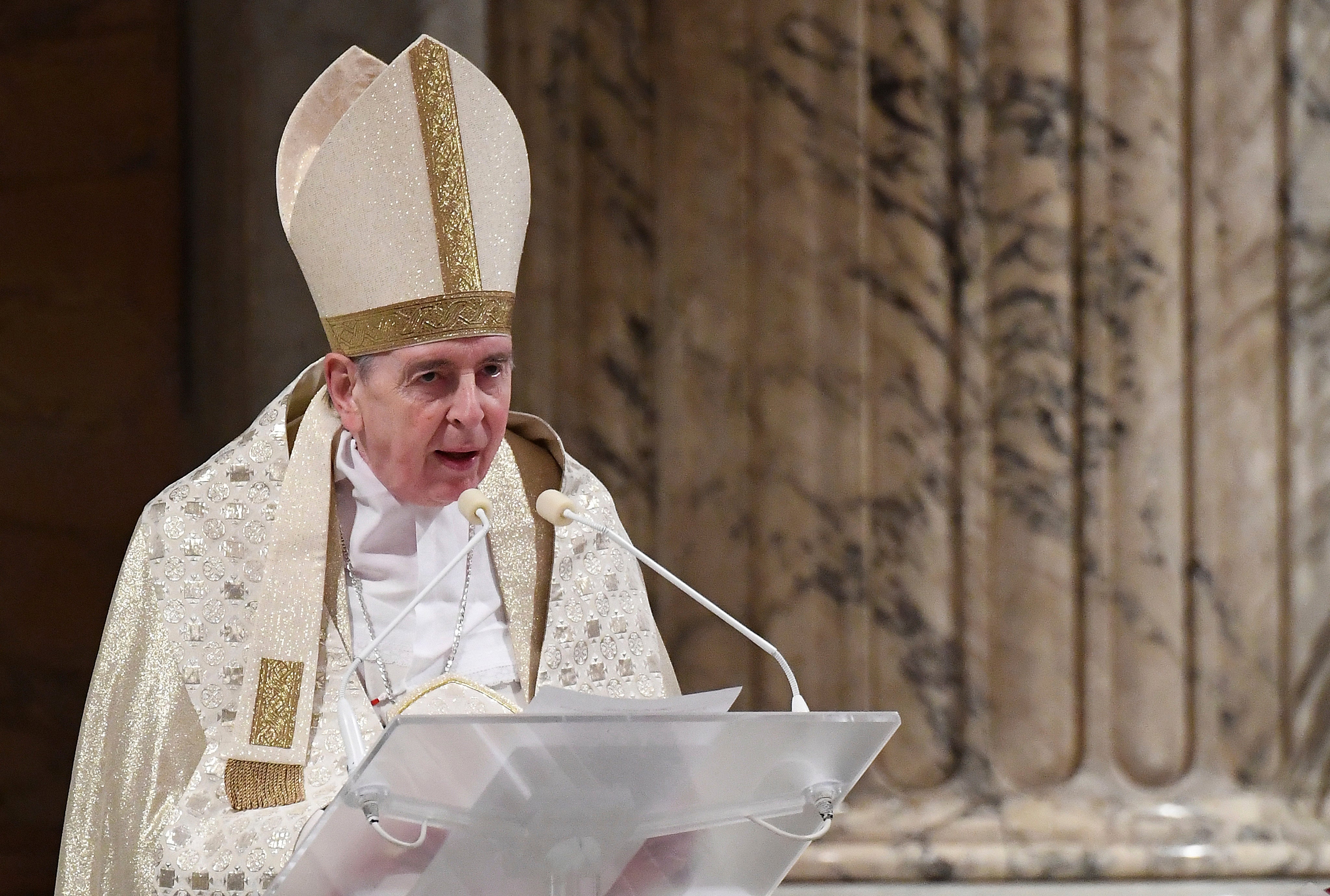Vatican cardinal cites Nazi theology in German reform
A new debate has erupted over the German Catholic Church's reform process

The German Catholic Church's reform process is again under fire from the Holy See, with a Vatican cardinal seemingly comparing its proposals for theological development to the thinking that sustained Germany's Nazi era.
The furor launched by Swiss Cardinal Kurt Koch, who heads the Holy See's office for Christian unity, marks the latest criticism of the German attempt to pursue reforms as a response to the clergy sex abuse scandal and the hemorrhaging of Catholic faithful.
Koch suggested in an interview with German Catholic newspaper Die Tagespost last week that the German reform process was seeking to introduce new sources of divine revelation, beyond Scripture and Christian tradition, to justify theological change.
He said it was the same thing some pro-Nazi Protestants did when they "saw God’s new revelation in blood and soil and in the rise of Hitler.”
His comments sparked outrage among German bishops who, along with German Catholic laity, are pursuing a long-term reform process known as the Synodal Path. Limburg Bishop Georg Baetzing, the head of the German bishops' conference, demanded that Koch retract the statement but the cardinal refused. The two met Tuesday at the Vatican on a previously scheduled visit.
In a statement Wednesday, the German conference said Koch assured Baetzing that he didn’t intend to compare the current process to the Nazi era.
“Cardinal Koch apologized to anyone who felt offended by the comparison he made,” the conference said in a statement. It said Koch and Baetzing agreed that “the theological debate the cardinal wanted to contribute to in the interview must be continued.”
Koch’s office didn’t immediately respond to calls and emails seeking additional comment.
The “Synodal Path” has sparked fierce resistance inside Germany, in the Vatican and beyond, primarily from conservatives opposed to opening any debate on issues such as priestly celibacy, women’s role in the church and homosexuality.
Some have openly warned of schism. The German bishops have pushed back saying that if they don’t change, the German church will continue to lose faithful – some 360,000 German Catholics formally left the church last year.
While Pope Francis has encouraged debate on such issues and is himself pursuing a process of greater dialogue with the laity, he appears skeptical or ambivalent at best about the German process, and has repeatedly put the brakes on it or allowed others to do so for him.
An unsigned Vatican statement this past summer warned the German church against any effort to impose new moral or doctrinal norms on the faithful on hot-button issues, saying doing so “would represent a wound to the ecclesial union and a threat to the unity of the church.”
Such moves have angered the German Catholic leadership, which sees the Synodal Path as a crucial way of regaining trust after a groundbreaking 2018 report into decades of clergy sexual abuse found systemic problems in the way power had been exercised by the all-male Catholic hierarchy.
Baetzing and the conference leadership were in Rome this week preparing the groundwork for a visit by all German bishops to the Holy See next month. Unlike normal visits, when bishops meet as a group with individual prefects of Holy See offices, the Germans are expected to meet with several Vatican prefects at the same time, along with the pope.
Bookmark popover
Removed from bookmarks